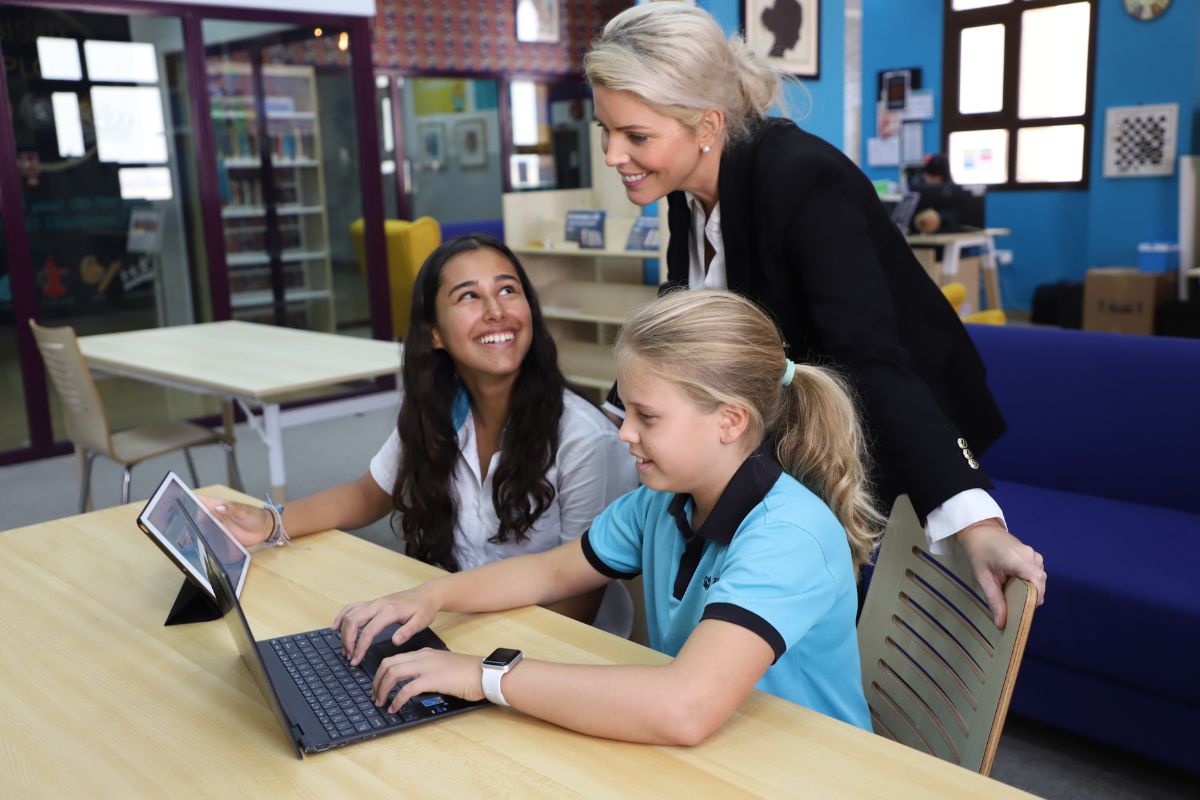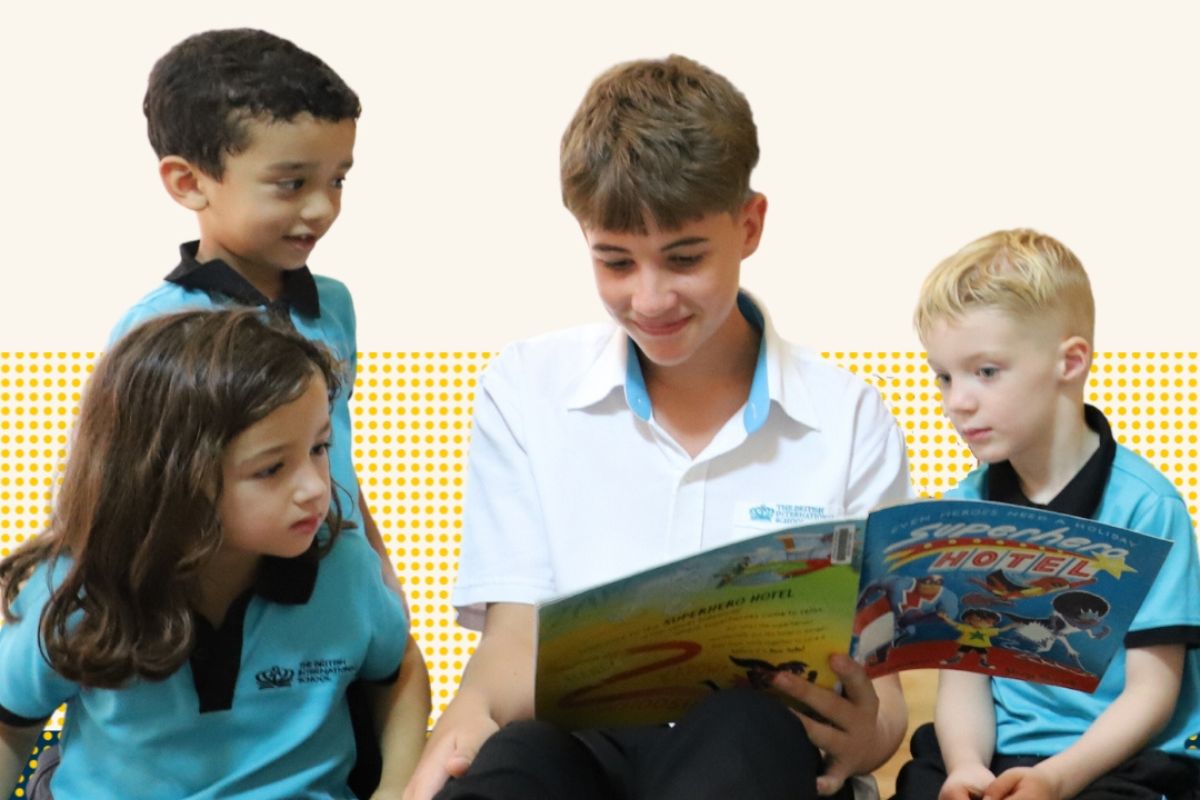
This prestigious British school is fostering a caring environment where overall student wellbeing is key to their students’ education
PARTNER CONTENT: British International School Abu Dhabi talks to the Yalla team about how they are educating their students about emotional support. Deputy Head of the pioneering school Aine McGlue outlines the plethora of ways in which the renowned international school provides emotional support for the cohort of students.
Which teaching strategies do you think are most effective for implementing emotional support?
Student wellbeing is at the heart of our educational environment and teachers play a vital role in nurturing emotional support. We believe in the importance of building positive relationships through engaging in active listening and empathy.
In fact, creating an inclusive classroom is one of our main priorities. To facilitate this, we expect our staff to engage in clear communication, flexible instruction and be sure to integrate content featuring issues around wellbeing into the curriculum.
We ensure all students feel valued through our engagement of student voice and commitment to Equality, Diversity, Inclusivity and Belonging (EDIB) by explicitly teaching students the importance of conflict resolution and fostering peer support networks.
An example of this would be the ‘Peer Assisted Learning’ scheme which helps to contribute to students’ emotional wellbeing, along with our Inclusivity Club which is delivered as a Co-Curricular Activity.
Initiatives such as these help drive priorities across the school, feeding into what we teach in assemblies and in our PSME lessons. They are currently designing posters around the school to support students’ sense of inclusion and belonging culturally.
Technology is used to enhance provision when appropriate, we have recently launched YouHQ from Year 6 to Year 13 which is an online platform for students to be able to raise any emotional concerns they may have with their class and form teachers.
We have found that engaging the use of technology in this way alongside what we already do in classrooms is having a noticeable effect on students feeling empowered as they have easy access to the emotional support they need in school.
You might also like: BIS Abu Dhabi Year 12 students are leading the way in creating a sustainable school
Student Voice is a key strategy for implementing emotional support in schools and students need to feel empowered and valued to thrive. This year, we have introduced Student-Led Learning Conferences. These meetings are held between students in Years 7, 8 and 9 alongside their tutors and parents.
The focus of the meeting is for students to talk about their experiences in school both in terms of their academic studies, but also their place in the school community and how they are developing holistically.
Students prepare for these meetings in their form classes by answering questions with their peers and form tutors and learning the language of wellbeing and empowerment.
How important is the roll out of Moral Education classes for this topic?
Personal, Social and Moral Education is an element of our curriculum and school structure that allows students meaningful time to reflect on their social, emotional and academic needs.
These lessons are delivered by the students’ personal form tutor and teacher and, therefore, there is an additional level of personalisation.
In Primary, our shared floor books serve as a collective record of our personal, social, cultural and moral education experiences. They contain learning insights, special day memories, photographs and student work. These floor books enhance our sense of community and celebrate our journey.
You might also like: BIS Abu Dhabi provide some helpful exam tips
The students love to look back at the learning and experiences that have happened across the year. We seamlessly integrate these principles into our broader personal, social, and moral education framework and within the themes of our school assemblies.
These components align with the ministry’s guidelines but offer us the flexibility to explore topics more deeply, with a primary focus on nurturing our students’ overall wellbeing. Assemblies comprise the active involvement of students, who not only participate but can also be seen leading discussions on critical issues they may be encountering.
It’s often common to see collaboration between Secondary and Primary students, with older students taking the lead in organising assemblies. Emotional intelligence in the curriculum helps support students to develop better self-awareness and empathy. This is crucial to building positive relationships and to be a good communicator.
By teaching emotional intelligence students learn how to manage conflict. This reduces the likeliness of disruptive behaviour and promotes a harmonious class environment. Emotional intelligence is not just limited to school, it’s a life skill.
When it is integrated into the curriculum, students can apply these skills to their future lives and future careers. Some ways we incorporate emotional intelligence into our curriculum is through our NA Global Campus, mindfulness activities, conflict resolution and emotional intelligences lessons.
What special days do students participate in to support emotional wellbeing within the school?
We are very passionate about student voices at BIS Abu Dhabi and part of this is ensuring we involve students in the planning and delivery of days in the calendar that have an impact on their wellbeing.
Last year, students led on the creation and delivery of kindness notes across the school as well as creating a Kindness Tree display.
Another big day in our calendar is the One People One Planet Sustainability Day. While this is aimed mainly at sustainability in the environment, the students on the planning committee last year wanted a focus on mental and physical health.
You might also like: BIS Abu Dhabi provide some helpful exam tips
They organised healthy eating stalls, yoga and exercise classes and Ted Talksabout emotional wellbeing to be delivered to our school community. We have a strong service culture throughout our school, this is a key part of our BISAD Diploma, where students record service activities that they have participated in.
We believe that positive emotional wellbeing stems from the positive impact we can have on those around us and further afield.
Testament to this is the volunteer work that students carry out every year in Tanzania and through the incredible contributions our students make to the Creativity, Activity and Service (CAS) element of their International Baccalaureate Diploma Programme.
Are the older students more proactive when dealing with this topic? Are they role models for the younger ones?
As we pride ourselves on being an inclusive and supportive community, students of all ages have the opportunity to take responsibility for their emotional wellbeing, and the emotional wellbeing of others. We do this by fostering a culture of care and empowerment, as well as resilience.
As we have spoken about, we believe in teaching students that wellbeing is a shared responsibility, regardless of age everyone plays a part in creating a safe and supportive community.
We find that older students learn from their younger peers just as much as the younger ones learn from the older. Interactions between students of different ages can create a dynamic exchange of emotional coping strategies, and this is something we actively encourage at BIS Abu Dhabi through whole school events such as House Day.
When discussing wellbeing with students, staff encourage empathy and resilience by encouraging all students to be an agent for change when it comes to their emotional wellbeing.
Younger students learn to voice their needs and concerns while older students reinforce these skills and offer guidance through schemes such as the previously mentioned peer assisted learning.
By fostering an environment where students of all ages contribute to emotional wellbeing, a unified support network emerges. As a result of this collective approach, we have found that the community that emerges is one of inclusivity, empathy, empowerment and care.
For further information, visit BIS Abu Dhabi
For further education related news around Abu Dhabi and beyond, visit Yalla Abu Dhabi Life

